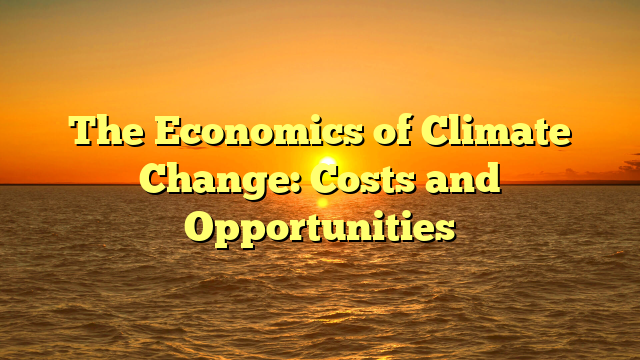Climate change is not just an environmental crisis—it’s an economic one. From rising insurance costs to disrupted supply chains, the financial impact of global betpaus warming is reshaping investment and policy decisions worldwide.
Extreme weather events destroy infrastructure and reduce agricultural productivity, costing billions annually. Coastal cities face rising sea levels, while droughts threaten food security. These risks are forcing governments and corporations to rethink how they allocate resources.
Yet within the crisis lies opportunity. The shift toward renewable energy, green construction, and sustainable agriculture is generating new markets and jobs. Investors are increasingly directing funds toward environmentally responsible businesses, recognizing that sustainability and profitability can go hand in hand.
Financial institutions are also integrating climate risk assessments into lending and investment decisions. This ensures that portfolios remain resilient as environmental policies tighten and fossil fuel assets lose value.
Ultimately, addressing climate change requires global financial cooperation. By viewing it as both a moral and economic imperative, the world can transition toward a more sustainable, resilient, and profitable future.
